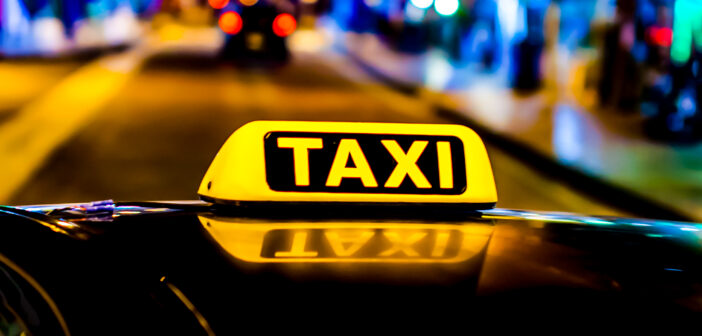The post was originally published in Russian on Startup of the Day. Alexander kindly agreed to republish what we think is of great value to our readers.
I saw a screenshot discussion on Facebook: Moscow Uber offers an economy ride from White Square to Pravda Street for 608 rubles ($8) which feels like $30 for more developed markets. The expected travel time is 4 minutes, the distance is not written, but I can walk this route in 15 minutes. Now, on a weekend, the same Uber asks me either 129 or 107 rubles ($1.5) for the same trip – supposedly a personal discount. The author of the post expressed outrage and suggested that aggregators voluntarily lower prices during rush hour. I want to comment in detail.
The law of nature, which is beyond the will of any service: when it is snowing on the street and it is time to leave work, more people want to take a taxi than on a sunny afternoon. At the same time, there is almost the same number of cars on the roads. And at some point, people who want to leave outnumber cars. If it is snowing especially heavy – the number of people is way bigger. Let’s assume 5 times.
If there are 5 times more people who are willing to leave than cars that can ride them, then 4 of these 5 will not go by taxi. I repeat, this is not the evil will of Yandex or Citymobil, this is the law of nature and arithmetic. Perhaps gravity is unfair, we want to fly, but alas, the Earth attracts. 4 out of 5 will not ride. There are no cars for them.
The aggregator cannot take out everyone; it can choose the one who is lucky. The industry standard used by modern taxi services looks like the following: the one who is ready to pay more will leave. The price rises to the level so that four of the passengers refuse the trip themselves, and the fifth takes the ride, which is 608 rubles. For the author of the post, it’s a lot, for some – it is acceptable.
However, other solutions are also possible. Suppose the price remains normal, and the distribution of cars will be carried out in the order of the general queue or close to it. Instead of a price auction, a waiting auction will appear. As before, 1 out of 5 will leave, but not the one who is ready to overpay, but the one who will wait.
This decision is strictly worse for society as a whole – money goes back and forth, the passenger gave it away, the driver, the aggregator, the payment system, and the government got it, everything is in its place. But the waiting time is wasted irretrievably, the passenger gave it away, no one received it. This decision is strictly worse for those who did not leave – in the first case, they were horrified and did not leave, and in the second, they waited and did not leave, wasted time. This decision is equivalent for the one who left – he turned out to be either the most generous of the five, or the most patient of the five, we can assume that it hurts him equally. This solution is strictly worse for the driver and the service – they earned less. The only one who wins is the one who feels sorry for money, but does not mind the time – now he is the winner. But the one who has money loses exactly the same amount.
A price auction and a waiting auction can be combined. In practice, this is what happens, the waiting time at rush hour also increases, but, of course, the question of ratios. You can make 1000 rubles and 3 minutes of waiting, 600 and 10, 400 and 20, 200 and an hour and a half – the specific numbers here, of course, are just to illustrate the idea.
You can also choose the lucky ones randomly or, say, by social rating. “Sorry, today the taxi does not work for you – Vasily Petrovich is onboarded, his rating in the service is higher,” – by the way, I would prefer this option instead of waiting, as the refusal is instantly obtained.
Maybe there is another way of choosing, it is important that all of them only redistribute a scarce resource – and no, over the millennia, no way has been invented more efficiently than rising prices. The late USSR tried to distribute sausage through queues in combination with networking to keep the price at 2.20 per kg – no one liked that.
On a narrow topic, I have nothing more to say. Below are the answers to predictable questions.
How can you increase the resource, make sure that 5 out of 5 have rides?
Increase the efficiency of the system in one way or another. For example, the “Uber Pool” approach is known – one car takes two passengers who need a ride to an approximately one direction. This works with Uber and Lyft in some cities. In Russia, no one has succeeded yet. But it will definitely work out sooner or later if not to excessively regulate the aggregators.
Increase the number of cars on the line. The base rates can be raised, the driver’s income will increase, and new people will come into the profession. And some of the passengers will accordingly disaccustom to ride a taxi. As a result, instead of a usually paid 130 rubles or rarely 600, the trip will cost the usual 200 roubles or rare 500. Or you can wait for the autopilot – this is another option for “new people”. You can encourage “part-time workers” who would only work as drivers during peak hours. Now the legislation is structured to make it difficult, but the Taxi Law is not a law of nature, it can be corrected. This would really bring down the peak prices noticeably. There would be many who would like to make 3 trips for 4 minutes for 400 rubles by their car.
You can aim at reducing demand. Improving the work of public transport, spoiling the quality of service in a taxi – we are considering any options. Or, again, wait, this time for global warming, so that the snow does not fall.
Then how to check if 600 rubles is really the result of the auction that makes Yandex not raise prices higher than necessary?
Go by car and ask a driver how long he was waiting for the order. If he didn’t wait at all, then some want to go at that price.
Why didn’t this happen a year ago?
I don’t have statistics, but I think nothing has changed in a year – you just forgot, the bad is washed out of your memory. If it really has become more expensive, then the possible reasons, for example, are:
– Snow. Winter is definitely colder than last year.
– COVID is pushing people out of the subway.
– The virus has a greater impact on movement during the day than during rush hours. Zoom has replaced meetings in cafes, but people still go to work. The unevenness of consumption has become stronger – and prices have risen behind it.
I do not insist on these reasons, there may be some others, but the important thing is the result, look again at the answer to the previous question.
And what if my leg is broken, and I really need to go and 600 is too much for me?
Yes. 4 out of 5 will not have a ride. And some of the 4 really needed it. In an ideal world, there would be some emergency methods for emergencies. But if you just change the auction price for the waiting auction, it will only get worse – “but if I have a pre-infarction state, have money and minutes matter?”
And let the aggregators not cash in on the snow and reduce the commission during peak hours. The prices at their expense will be lower, we will be grateful.
Prices will not get lower. To find one of the five, you need a price of 600 rubles. What happens next is not important at all, the cost is determined by demand, not by supply. All drivers are busy.
Monopolists are regulated everywhere. It is necessary to pinch Yandex too, it will be better.
Citymobil and Yandex compete quite tough, but let’s forget about that and imagine the city of one aggregator. In principle, you have to poke at it. Probably. I don’t know in what way, and I don’t know cities in Russia with one aggregator: where there is no Citymobil, there is Maxim. But you want to. Yet, this will not change anything at all in our task. Will leave anyway 1 out of 5. To select it, you still need some kind of auction. Either it will be money – and then 600 rubles, or waiting, or status, or something else very tricky. The price will remain the best option for everyone. It doesn’t matter if the Antitrust Committee appoints it or Yandex – it will still be 600 rubles. Or we wait two hours.
You advise to put up with it and wait for either Uber Pool, autopilot, or global warming. But it’s intolerable!
It is intolerable that it is impossible to have a cheap drive for a half kilometers by taxi – tell it to yourself from 2010! Just look at the tremendous progress that aggregators have made for the market in 10 years. How much more often did you travel, how much more comfortable trips have become, how much, adjusted for inflation, taxis have become cheaper. This is all the result of technology and the lack of overregulation. Let’s keep using the proven tools, they work. If you don’t touch, then in 10 years everything will definitely get even better.
#thoughts
Translation : Valeria Stupnikova

Alexander made his career in Russian internet companies including Mail.Ru, Rambler, RBC. From 2016 to 2018 he was Chief Strategy and Analytics officer in Mail.Ru Group. In this position, he worked on M&A, investments, and new project launches. In 2018 he became Deputy CEO in Citymobil, a Russian Uber-like company that was invested by Mail.Ru Group and Sberbank (the biggest Russian bank), then he left the company to launch his own projects. Now Alexander is a co-founder of United Investors – the platform for co-investments in Russian early-stage startups. His blog #startupoftheday (#стартапдня) is one of the most popular blogs about startups in Russia.





